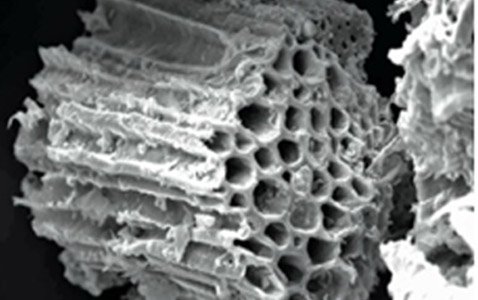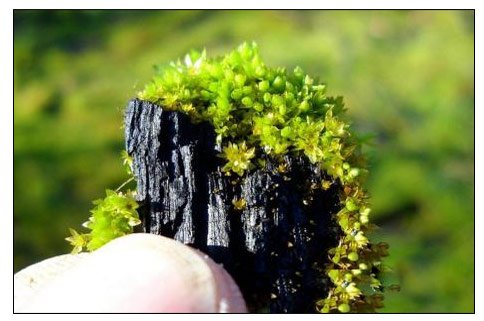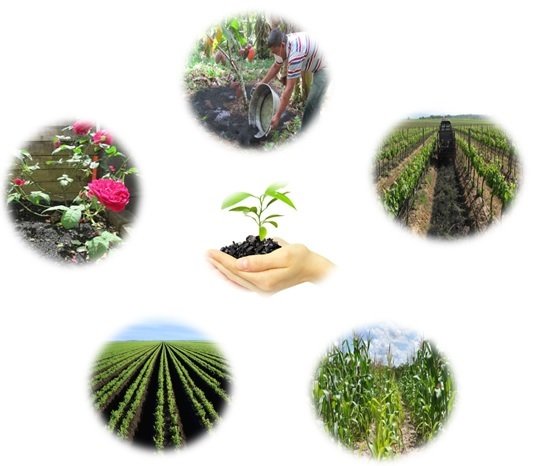What is Biochar?
We can define Biochar as a type of carbonized biomass that is derived from some sustainable sources in order to improve the environmental and agricultural value. Although it is a charcoal-like component, it is different from charcoal, applied as filter, reductant and fuel. As one of the porous elements, Biochar can retain nutrients and water of soil. For its absorption capacity, Biochar has the power to make the pesticides and metals immobilized. The carbon content in it covers more than 70%, while rest of the part has nitrogen, hydrogen and oxygen.
How Biochar structure works?
Plant biomass is the major component to form Biochar, which is empty inside and is very lightweight. This Biochar has the capillary suctioning ability and its micropores help in drawing water. However, micropores are also effective at restoring this soil moisture for roots and small microbes. While you have applied some Biochar, it increases the water-retention capacity of the soil.
Moreover, it has the potential of trapping air of pipes and small tubes. The emptiness in Biochar works as sponge; thus, it can absorb water very easily. Since the char has porosity, the soil turns out to be lighter and looser.


Adsorption Mechanism:
We have already said that Biochar has adsorption capacity. The term- adsorption indicates the process of attraction, found between molecules and atoms. That is why the Biochar is capable of holding the ions firmly. The water absorption potential of Biochar works due to the capillary suction process.
There are positive charges in the composition of Biochar, and its positive poles draw in the anions or negative ions. They are the acceptors of electrons, and carry charge to the cells for moving energy and for supplying power. Anion Exchange Capacity is the major factor, differentiating char from other particles in soil. In the soil anions, phosphorus and nitrogen play a very important role.
To make the soil highly fertile, anion adsorption process is most effective. With the collection of all the anions of soil, Biochar controls the nutrient loss and leaching. The nutrients do not get removed after rainfall. All the anions, including phosphorus or nitrogen are firmly held together. It retains the nutrients of plant’s root, and increases the fertilizer content.
Difference between Biochar and Charcoal:
Normal or regular charcoal differs from Biochar in both chemically and physically, the way they are produced and the way they enhance the plant’s growth.
| Biochar | Charcoal |
| It is manufactured with pyrolysis process by adding heat to the organic waste. The amount of oxygen in this setting is very low. Biochar has high carbon content. | The carbon percentage in it is low,and it is made under very low temperature |
| Different types of microorganisms get benefit from it. | Different types of microorganisms get benefit from it. |
| It is highly porous and has adsorption ability. That is why the microbes, water and nutrients have positive interactions among them. | The way of composing charcoal gives a contrary result. The adsorption capability becomes unsaturated, and thus, the microbes and nutrients cannot get it. |
| This carbon-enriched component is solid, and remains intact in the soil for several years. Thus, it is useful to improve the soil. | You can use it as fuel to cook or to generate heat for any other purpose. While you compare its surface area with biochar, it has much smaller value. |
Good Water Retention
To increase the fertility of soil, our Biochar is the right option. It retains the soil water, and that’s why you do not need to add much amount of water for irrigation.
Water Soluble carbon
Another feature of our Biochar is that it discharges carbon that can be dissolved in water. For increasing the ionic value and retaining the right pH level, this is the right option. Also strengthens the release of water-soluble Carbon under dry and wet conditions.

Microbial Activity
The presence of our Biochar enables more feasibility to microorganisms in soil, and this microbiological process of microorganisms increases the quality of the soil. All plants depend on these microorganisms for mineralizing nutrients for its better growth rate. The soil also gets a stable nitrogen and carbon reservoir to make the biological decomposition process faster.
Good Nutrient Reservoir
The soil’s Cation Exchange Capacity will have an increase due to the use of Biochar. Our Biochar works as the slow nutrient releasing component, and so you no need to add more fertilizers.
pH Stabilizer
The alkalinity of our Biochar has several cations, including Mg and K. All these things will balance the pH value of soil with the reduction of Hydrogen percentage. Our Biochar has the рН value of 8.6, and that is why using our Biochar neutralize soils that are acidic.
Biocare Applications
When Transplanting:
Biochar works best for nurturing the soil, and thus, you can use it while planting the seedlings. For top and side dressing elements, you can choose biochar. The blend must have 20 percent compost, soil and 10 percent char. Apply this blend for settling all the new fresh plants. It is essential to add water to the plants.
When Mulching:
You can use the char at the time of mulching. While peeling back the mulch after some weeks, you will find mycelia and active roots. A little amount of Biochar (1 cu ft) covers 500 sq ft.
When Sowing:
While you are sowing, you have to apply a blend, which comprises, soil, compost and Biochar. This is helpful in making the soil fluffy and fertile. Use the blend for covering all the seeds up to the right level.
When Farming:
At the time of transplanting, Biochar plays a good role, by fluffing up all the soil particles. You have to apply a component that contains 10 percent of Biochar and 20 percent of compost.
When Mulching:
While you are mulching, you can spread Biomass to get the better result. It is intended for preventing the denitrification, which indicates the reduction of nitrous oxide and emission of methane. It helps in heating up the seedbed.

| Dosage | |||||
|---|---|---|---|---|---|
| Plant | Methods |
Dosage | Note | ||
| Field Crops | Wheat, Rice, Corn | Start Fertilizer, Dressing Fertilizer | 300kgs – 500kgs per hectares | ||
| Fruit Trees | Grapes, Bananas, Apple etc. | Start Fertilizer, Dressing Fertilizer | 35 kgs to 20kgs per trees | 1 Years Old Tress | |
| Vegetables | Tomatoes, Onion, Melons, Tubers, Flowers etc., | Start Fertilizer, Dressing Fertilizer | 500kgs – 700kgs per Hectares | ||
Stay in Touch with us by …
